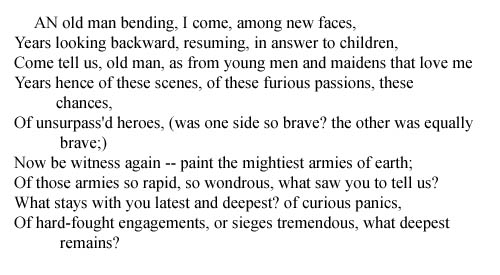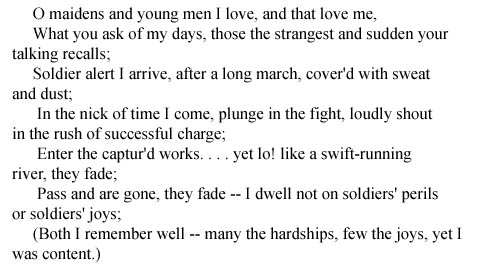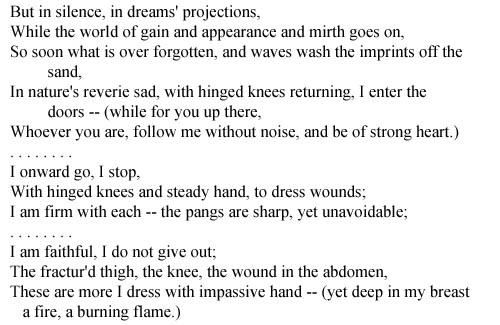
Whitman's war-poem "The Wound-Dresser" registers in a similar way the cultural anxiety surrounding gender, nursing, and soldiering. The poem begins with the classic question, "What did you do in the war, daddy?" Here, though, it is a rather more ambiguous scenario, not necessarily involving children, signaling even this early the poem's (at least partial) revision of the "standard story":
|

|
| The poem begins to answer in the standard way, until it
seems that it is only second-hand--only in fantasy--that these battle
scenes are being remembered:
|

|
| But whether fantasy or not, what is central to
see about the poem is that it refigures nursing
as a soldierly service, filled with the same rush and charge of energy,
commotion, bloody sights, and requiring a strong, "manly" character; thus
the parenthetical warning to the reader:
|

|
|
Thus a poem that seems not to question the validity of nursing nevertheless cannot evade the larger cultural anxiety about manliness. The poem even goes so far as to construct a straw man, the reader, against whose presumably feminine fearfulness the poem contrasts the manliness of the soldier-nurse speaker. At the same time the poem insists on locating its primal site of emotional value in a passionate, loving, and possibly erotic "burning flame" "deep in my breast." Recall the poem's final, parenthetical lines: "(Many a soldier's loving arms about this neck have cross'd and rested,/ Many a soldier's kiss dwells on these bearded lips.)"

 |